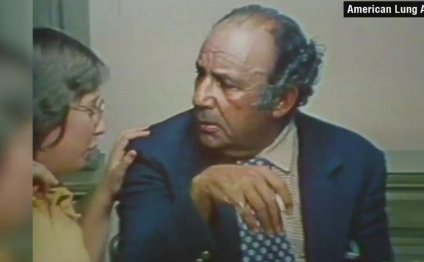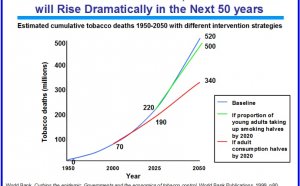
Anti-smoking campaign History
"Prohibition is won, now for tobacco, " proclaimed the great anti-saloon preacher Billy Sunday in 1919 (1). Within months of the war in Europe coming to an end, the US federal government passed the 18th Amendment and the sale and consumption of alcohol was banned across the nation. The temperance dream was now a reality and, for those who had spent years campaigning for it, prohibition was just the first step towards the moral regeneration of the country. The next step was to stamp out tobacco. In 1919, Frederich W. Roman published a book with the ominous title Nicotine Next and its author confirmed smokers' fears in an interview with the New York Tribune, saying: "We have been holding back our agitation during the war for patriotic reasons, but now that the war is over we intend to push it vigorously."(2) 'Nicotine Next' was soon adopted by the WCTU as their pithy, post-war slogan and Clarence True Wilson, leader of the Anti-Saloon League, urged anti-tobacconists to "strike while the iron is hot."(3)
For a time a total nationwide ban on tobacco seemed within reach. Gaston's Anti-Cigarette League set up eight new chapters and in 1919 changed its name once again, this time to the Anti-Cigarette League of the World. Gaston petitioned the Food and Drug Administration (FDA) to reclassify cigarettes as a 'habit forming drug'. The federal government increased tax on cigarettes by 50%, a policy the tobacco industry blamed on "professional reformers and honest lunatics."(4) Across the country companies refused to employ smokers, the YMCA resumed its anti-smoking stance, and Charles Pease of the Nonsmokers' Protective League announced that "we shall launch our campaign for legislation that will prohibit the growth, importation and sale of tobacco." (5)
Anti-smoking groups believed they could start from where they had left off before the war but they failed to appreciate how much the public's attitude to cigarettes had changed in the intervening years. They had banished alcohol and they expected to banish tobacco. But alcohol had never been described as "indispensable" by the supreme commander of the US armed forces. Tobacco had. While the federal government busy was outlawing booze, Nebraska, Tennessee and Oklahoma were quietly repealing their bans on cigarette sales. Wisconsin and South Dakota had already done likewise. Of the thirteen states that had banned cigarettes in their entirety only four had their bans in place by the end of 1919. At least 22 other states contemplated legislation but decided against it. In 1921 alone, no fewer than 92 anti-smoking measures were being considered in 28 states but very few of them ever made it into law and those which did focused on the relatively uncontroversial issue of juvenile smoking.
The tobacco industry set up the Tobacco Merchants Association to fight the anti-smoking lobby and it was joined by grass-roots organisations, for the anti-smokers did not have a monopoly on lobbying groups. Anti-Prohibitionists set up the Allied Tobacco League of America in 1919 and New Yorkers formed Smokers Against Tobacco Prohibition. In Utah, the Freeman's League argued that the state's tobacco ban was illiberal, ill conceived and bad for the economy; the law was overturned in 1923.
The sheer number of people smoking cigarettes after the war made the anti-smokers' task a difficult one. By the reckoning of the Assistant Secretary of War, 95% of the military used tobacco in some form during World War One. Previously, cigarette smoking had been largely confined to the nation's cities. Many in middle America would not have known a cigarette smoker personally and it was easy for them to believe the worst of what was said about 'coffin nails'. The return of the troops to American shores shattered these prejudices. The Camel smoking heroes of the Western front bore little resemblance to the weak-bodied, brain-damaged, degenerate cigarette fiends of popular imagination.
With solid medical evidence against smoking thin on the ground and with many physicians stoutly defending the habit, the public began to scrutinise the anti-smokers' claims against the cigarette. The likes of Lucy Page Gaston and Henry Ford, it was pointed out, had no medical qualifications and there was little or no scientific evidence behind the multitude of allegations made against tobacco. By what authority did the WCTU label cigarettes, tea, aspirin and ginger as narcotics?
Stories of boys dropping dead after one cigarette and opium being mixed into tobacco were treated with greater scepticism once the cigarette began to transcend class boundaries. Having donated to the war-time Smoke Funds it would have been somewhat incongruous for the public to demonise tobacco and the anti-smokers could not persuade them to perform such a U-turn.
Alcohol prohibition was proving to be as unworkable as it was unpopular. Billy Sunday had welcomed in the Prohibition era, saying: "The reign of tears is over. The slums will soon be a memory. We will turn our prisons into factories and our jails into storehouses."(6) This was as woeful a prediction as any in history. Fuelled by the trade in illicit liquor, organised crime reared its head in the early 1920s and the murder rate began a steady rise that peaked in 1933, when the year the law was finally overturned. Alcohol consumption soon returned to 60-70% of pre-1919 levels, tens of thousands were killed by bad moonshine, half a million people were prosecuted for alcohol violations, respect for the law was undermined and large sections of the public became resentful of authority.
The unpopularity of Prohibition only served to stiffen opposition to further anti-cigarette measures. Many feared for the future of the country if its leaders continued to pander to the illiberal and puritanical element that appeared to be holding the whip hand. When it became clear that the reform movement would not be appeased by outlawing drink, the nation's libertarian spirit reasserted itself. Where would it stop? The New York World cautioned its readers:
"The unprotesting generation that lost its right to drink may yet lose its right to smoke, and also, if it submits gracefully, its right to walk under a full moon or sit on the grass."(7)Share this Post
Related posts
Tobacco history Timeline
A tobacco history timeline published today by the Robert Wood Johnson Foundation showcases a decrease in smoking among adults…
Read MoreStatewide smoking ban
Kentucky leads the nation in smoking, and how the state goes about addressing that distinction will rest in part with the…
Read More










